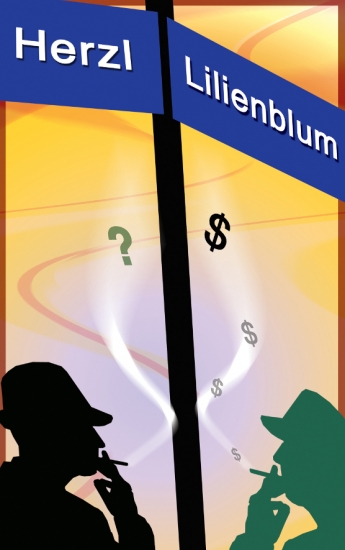
Many, many years ago when I was still working at the bank I was asked to write the daily stock market column for The Jerusalem Post. It was really a piece of cake and I enjoyed mingling with the journalists.
In those days the shekel was not convertible into other currencies. Instead one purchased a fictitious currency called “natad”. The natad was set daily and was published by the banks. There was a second currency - the black market dollar. Dollars were bought and sold freely and the center of their trade was the corner of Herzl and Lilienblum streets in Tel Aviv.
I wondered who would be prepared to offer me a price quotation for that day. I was told that I would have no trouble identifying the money changers. And so with a sense of trepidation I went to Herzl and Lilienblum. I spotted a well dressed man with a fedora, just the sort that I would identify as a money changer. I approached him and explained that I was a journalist and needed the black market rate for the dollar. He gave it to me gladly and said that I could call on him daily. His name was Itzik and I became fascinated by him. Everyone knew about the black market dollar but few knew where one could buy it. I told Itzik about the article and he said he would be glad to oblige as long as I don't mention his full name.
And so we sat down at one of Herzl Street's coffee houses. He made a fascinating subject. During the Second World War he was in Paris and found that buying and selling gold and gold watches provided him with a good livelihood. He immigrated to Israel and settled with his wife and son in Tel Aviv. It did not take long for Itzik to discover Lilienblum Street and one could see him daily plying his trade. His experience in black market activities in Paris during the war made him an excellent money changer.
Itzik’s son was a high-ranking officer in the Israel Defense Forces. Itzik was ashamed to tell his son how he made his living.
The article was superb and I received many compliments. I had to translate it into Hebrew. Itzik thanked me and said only how sorry he was that he couldn't show the article to his son.
When we moved to Israel my father, a successful industrialist, decided that he must build an industrial plant in Israel. He created a partnership with the Recanati family and so in Kfar Saba a magnificent, fully air-conditioned plant was built. I enjoyed traveling from Tel Aviv to Kfar Saba along rural roads. My cousin, a judge in Kfar Saba, once asked me how I drove to Kfar Saba from Tel Aviv. When he heard, he said that I was taking a roundabout road and he described in detail a road that would save me at least 10 minutes of driving. Menachem had always given us good advice so I followed his instructions. He had helped us with many things when we had arrived. And so the next day I followed cousin Menachem's instructions. I turned at Petach Tikva and after a short ride I realized that all the road signs were in Arabic and not in the customary Hebrew and English. I found myself in the middle of a square and then I knew that I had strayed from Israel into Jordan. Fortunately, I was aware that Jordan and Israel were on good terms so I had little concern about being arrested. I saw a gentleman dressed in a policeman's uniform. I drove up to him and innocently asked whether he could direct me to Israel. To my great surprise he calmly answered: "over there". A few minutes later, with a sigh of relief, I was back in Israel.
It all began with a "familial" wager. In the late 1970s I was serving two functions ‒ banker and journalist. I wrote daily for The Jerusalem Post and worked full time at Israel's fourth largest bank. I enjoyed writing about science and technology. I had already written four books on these subjects. It was little wonder that I felt as if I were sitting on top of the world. Except at home, I never mentioned my feelings to anyone. My better half complained that I was" full of myself". At the drop of a hat I would proclaim that there was no one in Israel who would refuse an interview. She laughed. Indeed, if you are right, as a prize, I will cook for you the best kosher Beef Stroganoff that you have ever eaten. The challenge was more than I could resist and the wager was struck.
For me it was easy. I contacted Mrs. Nardi, President Ephraim Katzir's secretary. I was asked to submit 20 subjects for his approval and eventual discussion. On the appointed day I was there an hour early and sat in my car waiting for 5pm to come. When it finally did I approached the booth outside the President's house. The guard sprang into action. "We have been looking for you on the highway. No one could find you," blurted the guard. I realized the error of my ways. "May I go inside and apologize to the President in person, for my lateness?" I asked. I was ushered into the President's study. He sat me down and in his humble manner, assured me that we could begin our discussion. It turned out to be a superb interview. It was full of anecdotes and popular science. As per agreement, I submitted my 7,500 word article for approval. I was advised that President Katzir did not wish to have it published. It became clear that, in the President's opinion, I had exaggerated his scientific achievements and standing. He was too modest and would not have the article published. In any case I enjoyed the Beef Stroganoff.
A few years later the Weizmann Institute invited me to a birthday party to celebrate Professor Katzir's 70th birthday. His students came from all over the world. It was a wonderful day. If there was a lesson to be learned from these experiences it was that an ounce of modesty would never harm.
There are many Jewish philanthropists who are well known. One of the lesser known was a London Jew Sam Sebba.
Early on, together with his brother, a banker, he amassed a fortune whose basis was in London real estate. Throughout the year he traveled to various parts of the world. He developed a penchant for Israel where three of his children were living and bought a magnificent estate in Tel Mond outside of Tel Aviv. Sam was a philanthropist. I once asked him about a degree of honoris causis. He explained to me that where there was lots of honoris then there was lots of causis. He supported hospitals universities and individual publications. He backed financially the translation of the Talmud to English. His modesty hid many of his philanthropies.
He was a tall man and very shy. He wore a hearing aid but if you watched him closely he was not as deaf as he appeared. The hearing aid gave him an opportunity to think twice before speaking. Others found it annoying. He liked to dance and he could be seen at parties dancing with women considerably younger than himself.
Few people were aware of Sam's little known predilection - gambling. Sam never went to casinos nor did he play cards. However, he had a penchant for buying and selling shares. Wherever he traveled he opened an account at a bank or brokerage house and would use it on his frequent visits.
When visiting Israel he would visit me, his banker, and eagerly listen to developments on the capital markets. In the late 1970s the Tel Aviv Stock Exchange was experiencing a bull market of major proportions. Sam was particularly interested in the new issue market. Companies would float their shares and the public would bid for many times the number of shares on offer. When the shares began trading, it invariably was at a substantial premium. Sam learned that investors wishing to buy a new issue would generally receive less than 1% of the amount requested. Institutional investors however, generally received the full amount ordered.
Shortly afterwards Bank Hapoalim was preparing a public financing, one of the largest public issues ever. Anyone who was interested would have noted in the prospectus, the document accompanying the new issue, a $200,000 investment in the name of Rothschild Bank, Geneva. The day before the issue the banker received a call from Sam Sebba. "You noticed the Rothschild Geneva participation. Well it isn't Rothschild, it is Sam Sebba. Would you like to sell the shares for me?" The next day the shares were traded at a 37% premium over the purchase price. Some time later Sam Sebba arrived at the bank. "Can I get a checkbook?" he asked.
I looked over Sam's shoulder and noticed that the full profit of $74,000 was made over to Israel's major universities.
Sam Sebba died at 100.
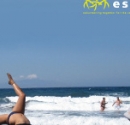 DEAR EDITOR 155
DEAR EDITOR 155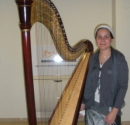 MODIIN ON THE MOVE
MODIIN ON THE MOVE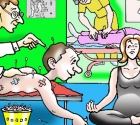 HEALTH HINTS ONIONS FOR JAUNDICE
HEALTH HINTS ONIONS FOR JAUNDICE-1372524003.jpg) the key question
the key question 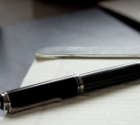 advantages of the living trust
advantages of the living trust Chaim BePlus
Chaim BePlus Joseph (Joe) Morgenstern
Joseph (Joe) Morgenstern